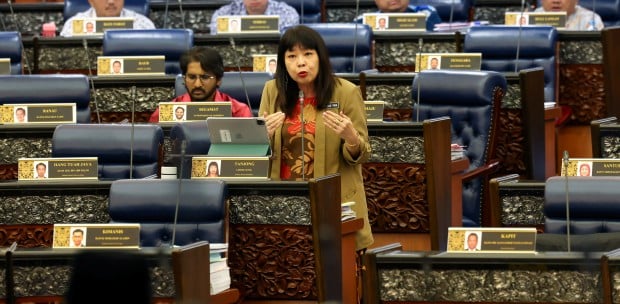KUALA LUMPUR: MCA and MIC applauded the Court of Appeal's verdict today that using Chinese and Tamil as mediums of instruction in national or vernacular schools does not breach the Federal Constitution.
MCA secretary Datuk Chong Sin Woon said the ruling solidified the legal standing of vernacular education.
"Both the fundamental right of all ethnic communities to pursue mother tongue education and the parental right to choose schools for their children are undeniably protected by the law of the land," he said in a statement today.
Chong said the court also allowed the appeal by Dong Jiao Zong, affirming that the use of instructional languages in these schools is not for official purposes.
He criticised attempts to undermine vernacular schools which not only contradict the core principles of Malaysia and established legal provisions "but also antagonised the people".
"If the appellants decide to further appeal the case to the Federal Court following the aforementioned judgement by the Court of Appeal, MCA will continue to defend the position of vernacular schools through its legal team," he stressed.
Echoing Chong, MIC secretary-general Datuk RT. Rajasekaran said one should not argue that the drafters of the Constitution would have intended for the use of Tamil or Chinese language to be considered unconstitutional.
"This ruling has propounded the use of Tamil and Chinese in vernacular schools, which is further protected by Article 152(b), as it offers a right to preserve and sustain the use of the languages," he said.
MCA president Datuk Seri Dr Wee Ka Siong said the party has always been unwavering in defending vernacular education.
"Our predecessors in MCA, who drafted the Federal Constitution with other coalition members, had included the article in the Federal Constitution to protect vernacular school education," he said in an Instagram posting today.
The Court of Appeal today ruled that schools are neither statutory nor public authorities, and the use of such languages (Chinese and Tamil) had existed even before the promulgation and adoption of the Federal Constitution.
The court said this in its unanimous decision in dismissing an appeal by four organisations seeking a court declaration that the existence of vernacular schools and the use of Chinese and Tamil languages as mediums of instruction were against the Constitution.
The four organisations were the Islamic Education Development Council (Mappim), the Confederation of Malaysian Writers Association (Gapena), Ikatan Muslimin Malaysia, and Ikatan Guru-Guru Muslim.





